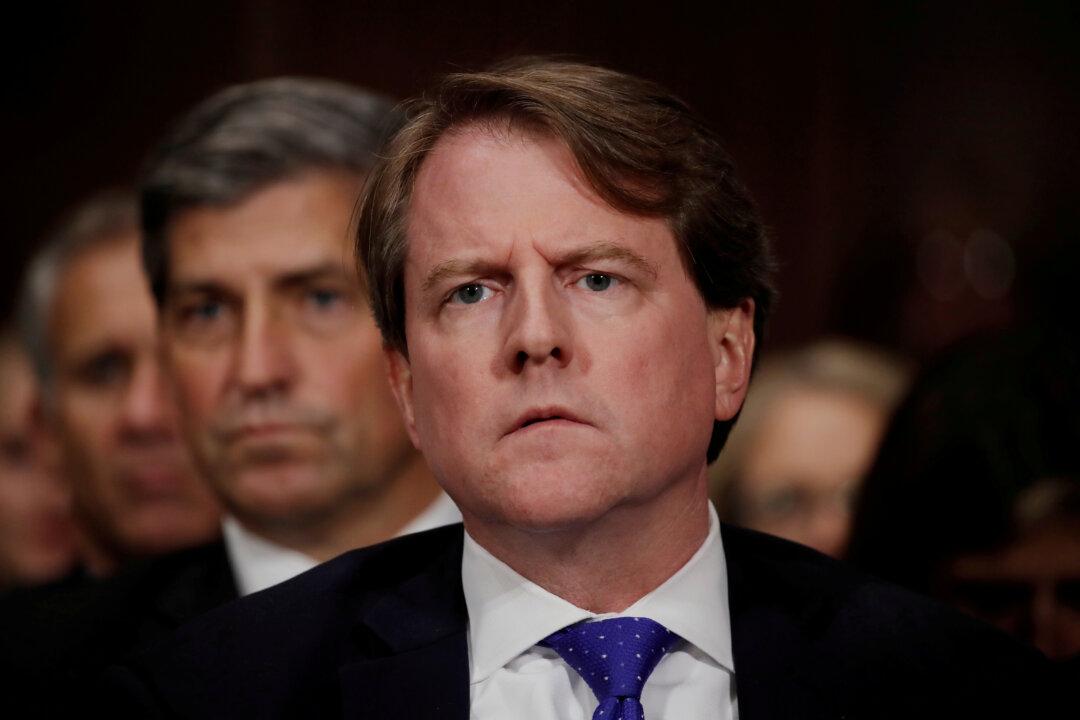The Justice Department (DOJ) has said it will be appealing a federal court decision to require former White House counsel Don McGahn to testify before the House Judiciary Committee.
U.S. District Judge Ketanji Brown Jackson rejected the White House’s “absolute immunity” argument to prevent McGahn from appearing to testifying, saying that McGahn is required to appear before the House Judiciary Committee for testimony but is allowed to assert privilege on questions asked during a hearing, where appropriate.




